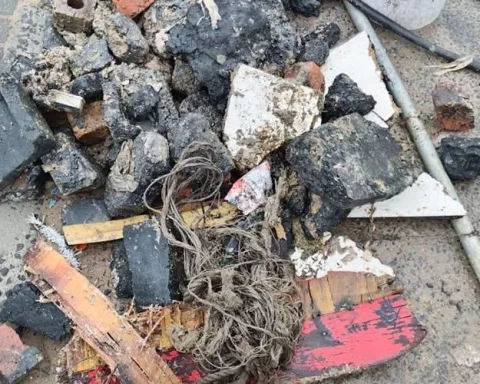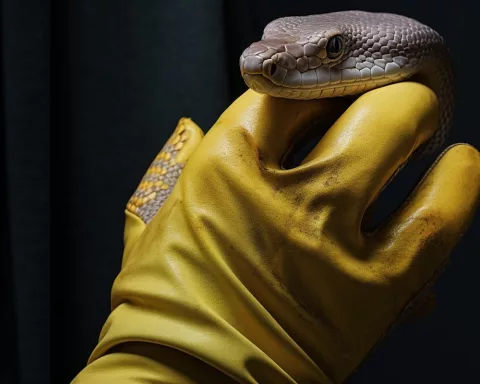The Mpox disease is a highly contagious viral sickness that causes painful rashes, fever, and swollen lymph nodes. It can spread through person-to-person contact, sexual intercourse, and activities like hunting, skinning, or cooking animals. The South African Department of Health has issued a plea for individuals experiencing potential symptoms to diligently seek screening and testing. The department is also managing the annual influenza season, with high-risk groups encouraged to get vaccinated and follow preventative measures. It is crucial for communities to make informed choices and safeguard each other.
What is Mpox Disease and How does it Spread?
Mpox disease, also known as Monkey, is a highly contagious viral sickness that presents with painful rashes, fever, and swollen lymph nodes. The disease can spread through person-to-person contact, sexual intercourse, and activities like hunting, skinning, or cooking animals. It can also be transmitted through inanimate objects like contaminated bedding, clothing, or needles. Prospective mothers can also unknowingly become carriers of the disease, risking transmission to their unborn babies.
The haunting shadow of any rampant disease often ignites a pervasive fear, its invisible fingers reaching out to impact innocent lives. This shared dread has re-emerged through the lethal strain known as Mpox disease, or informally, Monkey. An impassioned call to action has been issued by the South African Department of Health, urging individuals experiencing potential symptoms to diligently seek screening and testing. The necessity of this plea is underscored by the confirmation of a second infection within the country.
The latest victim is a 39-year-old male, currently receiving treatment in a Durban-based hospital. His situation is laden with intrigue due to the lack of any travel history to nations where the disease is rampant. Now, the Department of Health and the National Institute for Communicable Diseases (NICD) find themselves battling against the clock, instigating rigorous contact tracing and case finding to pinpoint individuals who may have been exposed and mitigate further spread.
Understanding the Adversary: Mpox’s Impact and Consequences
The Mpox disease is a formidable opponent, a contagious viral sickness that presents with painful, pimple-like or blistering rashes, fever, and swollen lymph nodes. March’s distressing report from the World Health Organisation (WHO) indicated a significant multi-country outbreak, with 466 laboratory-confirmed cases and a sobering count of three fatalities. The geographical spread spans Africa, Europe, the Americas, the Western Pacific, and South-East Asia. The Democratic Republic of Congo bears the greatest burden with the highest number of confirmed cases in the African region.
The transmission of this dangerous disease occurs through multiple routes, from person-to-person contact such as touching, sexual intercourse, to activities like hunting, skinning, or cooking animals. Even lifeless items such as contaminated bedding, clothing, or needles may act as vehicles for the virus. Alarmingly, prospective mothers can unknowingly become carriers of the disease, risking transmission to their unborn babies.
The Double Threat: The Looming Influenza Season
While grappling with the Mpox threat, the Department of Health is concurrently managing another health challenge – the annual influenza season, set to begin in late April 2024. This year’s flu season has seen a multitude of different strains causing damage, leading to severe complications for some patients. Remarkably, 8 to 10% of patients hospitalized for pneumonia and 25% of patients displaying flu-like symptoms, including fever and coughing, have tested positive for influenza.
According to data from the NICD, there has been an upward trend in both the number of influenza cases and positivity rates. However, the institute emphasizes that transmission and impact remain within the moderate range, in line with a typical influenza season. High-risk groups, such as pregnant women, individuals living with HIV, those with chronic conditions, the elderly, and children, are strongly encouraged to get vaccinated and follow preventative measures like covering the mouth and nose, ensuring adequate ventilation, and maintaining regular hand hygiene.
Shared Responsibility in Times of Crisis
In these challenging times of rampant diseases and widespread uncertainty, it is crucial for communities to heed the advice of health organizations. The decisions we make today will undoubtedly reverberate into the future, shaping the trajectory of not just our health but also the well-being of those around us. Let’s make informed choices, respond swiftly, and safeguard each other.
1. What is Mpox disease?
Mpox disease, also known as Monkey, is a highly contagious viral sickness that presents with painful rashes, fever, and swollen lymph nodes.
2. How does Mpox disease spread?
The disease can spread through person-to-person contact, sexual intercourse, and activities like hunting, skinning, or cooking animals. It can also be transmitted through inanimate objects like contaminated bedding, clothing, or needles.
3. What should individuals experiencing potential symptoms of Mpox disease do?
Individuals experiencing potential symptoms should diligently seek screening and testing.
4. What is the impact of Mpox disease?
According to the World Health Organisation (WHO), there has been a significant multi-country outbreak, with 466 laboratory-confirmed cases and a sobering count of three fatalities. The geographical spread spans Africa, Europe, the Americas, the Western Pacific, and South-East Asia.
5. What is the annual influenza season and how is it managed?
The annual influenza season is managed by the Department of Health and set to begin in late April 2024. High-risk groups, such as pregnant women, individuals living with HIV, those with chronic conditions, the elderly, and children, are strongly encouraged to get vaccinated and follow preventative measures like covering the mouth and nose, ensuring adequate ventilation, and maintaining regular hand hygiene.
6. What is the shared responsibility in times of crisis?
It is crucial for communities to make informed choices and safeguard each other. The decisions we make today will undoubtedly reverberate into the future, shaping the trajectory of not just our health but also the well-being of those around us.












